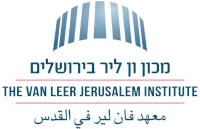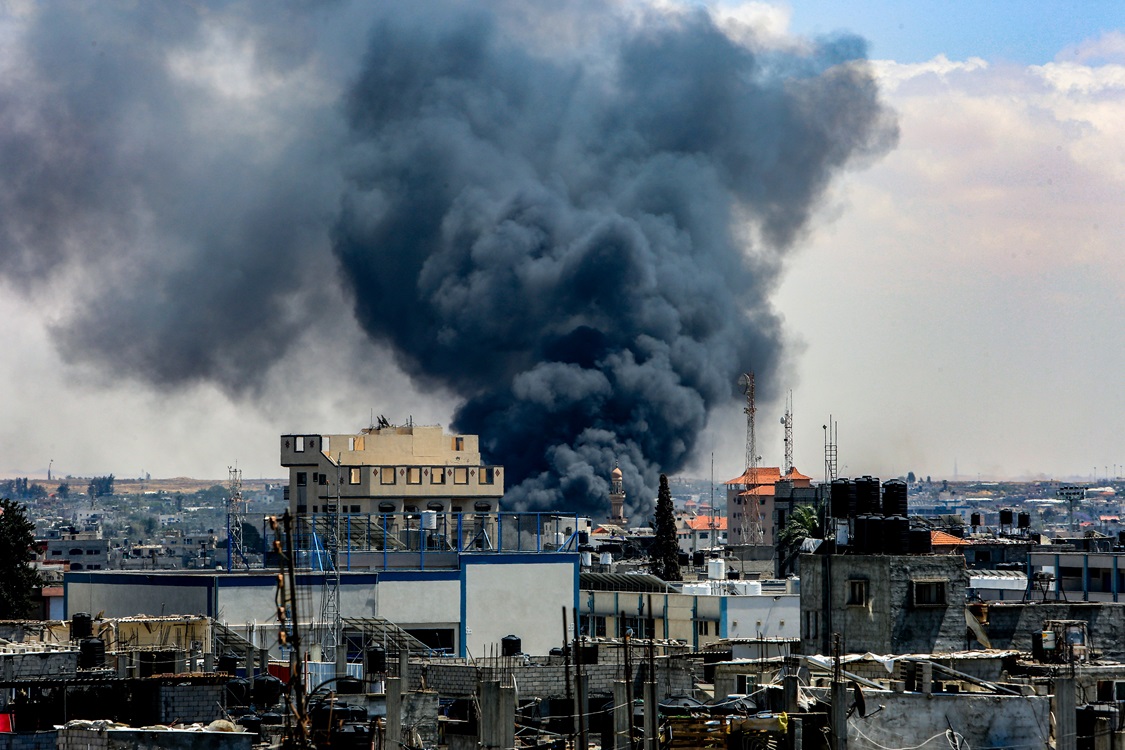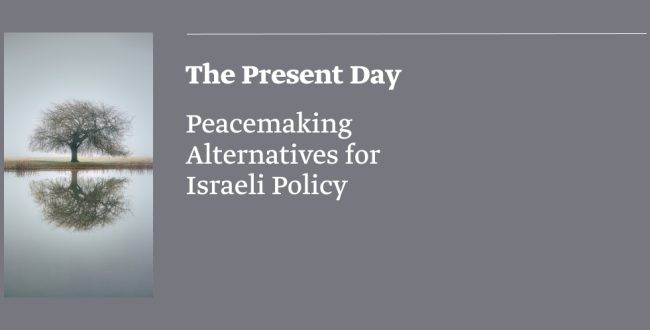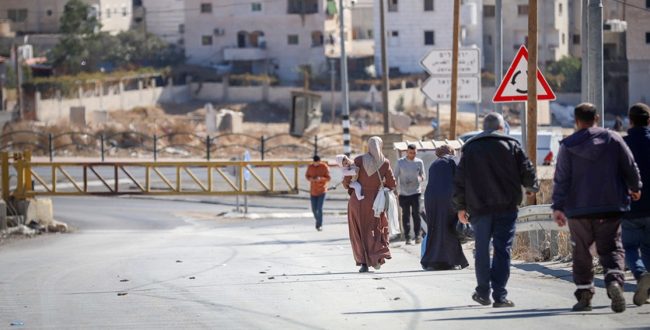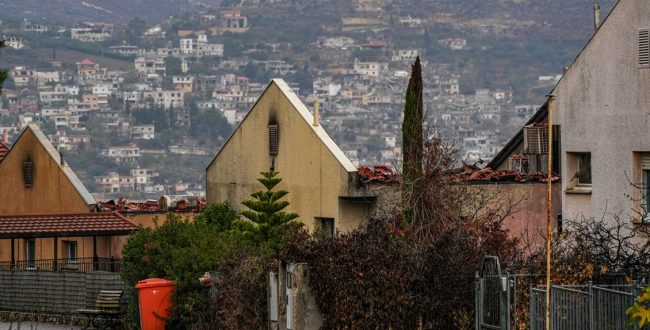This publication marks the beginning of a new initiative by “The Forum for Regional Thinking” (FORTH) and the “Israel in the Middle East” research division at the Van Leer Jerusalem Institute (VLJI). This initiative, comprising scholars, authors, and activists, aims to provide the Israeli public with critical perspectives on Israel’s position in the Middle East. In this newsletter, we present some of our recent activities and analyses of current affairs related to Israel and its surroundings.
Middle Eastern studies in Israel have traditionally been characterized by a strong security orientation and loyalty to the state’s narrative. While this bias is not unique to Middle Eastern studies, it is particularly problematic in this field, preventing other forms of knowledge and analysis from emerging. Another acute problem is the poor representation of Arab and especially Palestinian affairs in Israeli media, which is often marked by misrepresentation, sensationalism, populism, and outright racism.
We are committed to a critical examination of Israel’s place in the Middle East. This perspective challenges the dominant view, both in Israel and the West, whereby Israel is considered a “villa in the jungle”
The joint initiative of FORTH and VLJI seeks to address this distortion in the representation of Muslim, Arab, and Palestinian affairs to the Israeli public and within academic discourse. By acknowledging the plurality of Middle Eastern perspectives, agendas, histories, and worldviews, we offer our Hebrew readers an alternative point of view based on a nuanced reading of events, developments, and trends in the region.
FORTH and VLJI Middle East scholars, consisting of Jews and Arabs, Israelis and Palestinians, are committed to a critical examination of Israel’s place in the Middle East. This perspective challenges the dominant view, both in Israel and the West, whereby Israel is considered a “villa in the jungle”— a liberal democracy that enjoys moral and ‘civilizational’ superiority over its neighbors and therefore is entitled to less scrutiny and international oversight. We argue that a safe and prosperous future for Israelis and Israel requires publicly and intellectually questioning this view.
The Hamas attack on October 7th and the ongoing Israeli onslaught in Gaza have not undermined our conviction. As Israel fails to promise any secure, let alone stable future for its citizens, continues its destruction of Gaza and consequently of any prospect for peace — all while facing potential war-crime charges in the Hague — now, more than ever, we must continue to oppose Netanyahu’s regime and the dangerous agenda of the Israeli Right-wing.
Our main audience remains the Jewish-Israeli Hebrew readership. However, we also find it important to make our perspective accessible to other audiences, including international scholars, analysts, and journalists interested in critical, local perspectives emerging from and regarding Israel/Palestine and Israel’s positionality in the Middle East.
This monthly newsletter aims to provide our readers with our analysis of current affairs, including highlights of selected recent publications in Hebrew. We also spotlight our authors whose work we find especially relevant. While most of the content we refer to is in Hebrew, we hope to translate more of our regular publications into English.
Any political solution that does not reconnect Gaza to its surroundings — is set up for failure. What we are witnessing now is an even more brutal reenactment of Rafah’s history rather than a remedy to it
Rafah, Al-Jazeera, Amnesia
Before the Israeli invasion of Rafah, we argued that the debate over whether the invasion of the Palestinian town was yet another example of Prime Minister Benjamin Netanyahu’s ability to manipulate Israeli discourse (and so too the international or at least Western discourse). We argued that referring to a military operation in Rafah as a turning point in the war was a hoax that the Israeli media readily adopted. The military logic of invading the town is of course obvious, as Rafah, via its underground tunnels, serves as the only connection of the Palestinian armed factions to the outside world. Tactically, cutting this link is logical, however this tactical discussion obscures the fact that there cannot be a solution to the Gaza problem and Palestine problem more broadly that is not a political solution.
To illustrate this, we invited readers to explore the long history of tunnels in Rafah. For example, Nicolas Pelham’s excellent essay in the Journal of Palestine Studies surveys the political economy of tunnels in the town, which numbered around 1,500 in 2012. We also encourage readers to learn about historical anecdotes dating as far back as 1984, such as an amused report by the late Israeli outlet Hadashot (News) after the discovery of and sealing off of a tunnel by Egyptian forces. The tunnels have always been used for smuggling custom-free goods and weapons but also for family visits.
This perspective reminds us that the problem of the tunnels began after Rafah was effectively split in half, a few years after the Camp David Accords that took place between Israel and Egypt in the 1978. Speaking decisively about conquering Rafah is an expression of the Israeli ‘amnesia’. Even if Israel were to successfully demolish most of the tunnels, in order to maintain this achievement over time, it would require a longstanding military presence in the area and significant cooperation with Egypt. Can anyone imagine such a scenario under the current conditions? In light of this analysis, we argue that the debate over the invasion of Rafah was just another excuse for Netanyahu to prolong the war.
One of our fellows, Dr. Dotan Halevy, a social historian and prominent historian of the Gaza Strip, offers a long-term antidote to the amnesia that is prevalent in Israel and beyond. Halevy, who earned his PhD at Columbia University, provides our readers with a sober analysis of Gaza’s situation, warning of the dangers of keeping Gaza sealed off from the world. A key takeaway from Halevy’s analysis is that any political solution that does not reconnect Gaza to its surroundings — is set up for failure. What we are witnessing now is an even more brutal reenactment of Rafah’s history rather than a remedy to it.
one should not have to agree with Al-Jazeera’s agenda, which aligns with the Qatari state, in order to protest its closure in Israel
In another shared publication, we unequivocally condemned the closing down of Al-Jazeera offices in Israel. In a manner that can only be described as comical, the Netanyahu government had been collaborating with Qatar for many years. Far-Right wing ministers such as Yariv Levin had boasted about watching Al-Jazeera to balance-out the so called biased, liberal Israeli media. After the Hamas attack, this tone changed, and in May, the Israeli government made it illegal for the station to report from Israel on the grounds that it supports terrorism.
We argue that one should not have to agree with Al-Jazeera’s agenda, which aligns with the Qatari state, in order to protest its closure in Israel. Al-Jazeera, since its founding in 1996, revolutionized broadcasting in the Arab Middle East, paving the way for more pluralistic, informed discussions, even if biased and not liberal or pluralistic enough to some.
Al-Jazeera is a Middle Eastern voice that cannot be ignored by simply shutting it down. We emphasize that, given the overall context, Al-Jazeera has for the most part produced a balanced and somewhat fair representation of Israel and Israeli society, especially in comparison to Israeli coverage of Arab affairs. Shutting it down is like hoping Israel’s surroundings will disappear with the push of a button. This, like the invasion Rafah, does not provide a sustainable solution to Israel’s problems.


